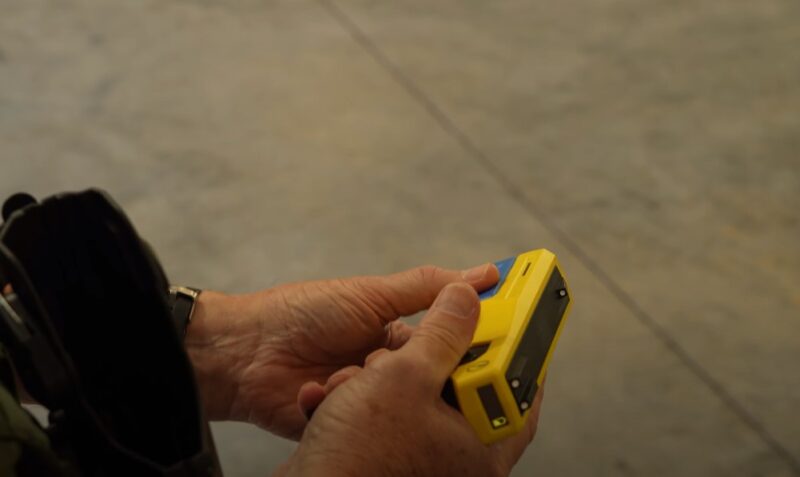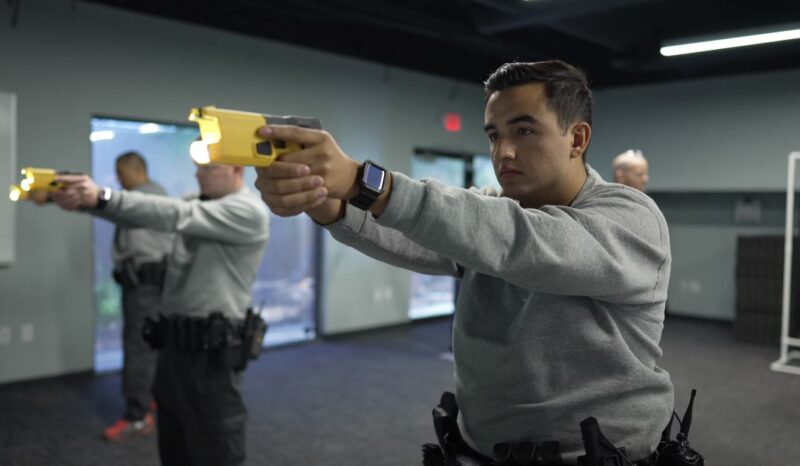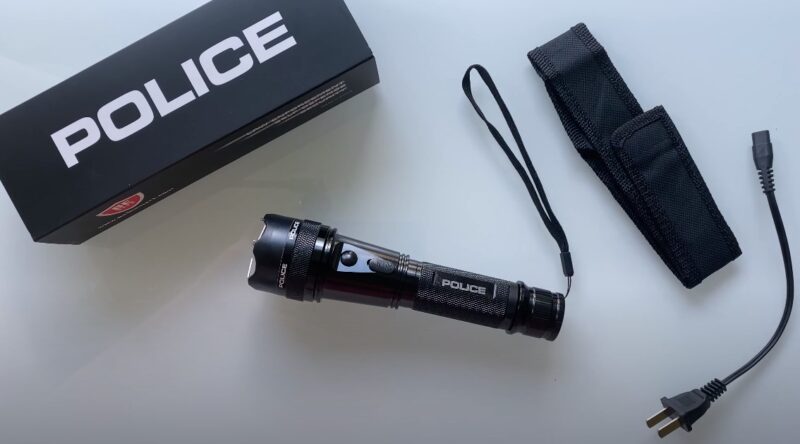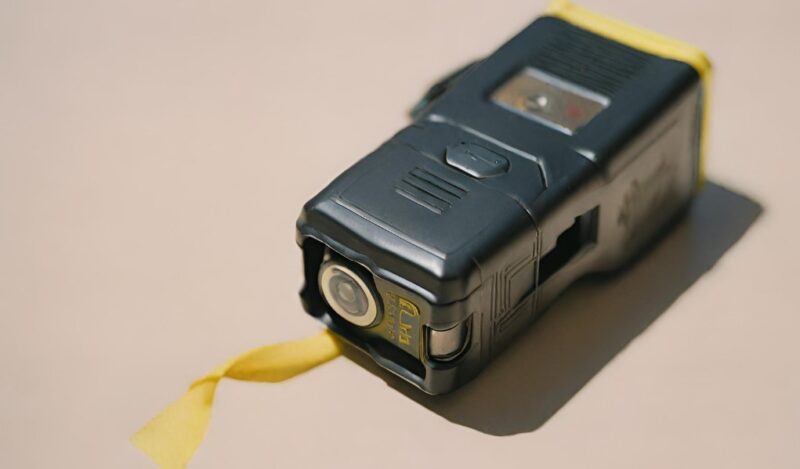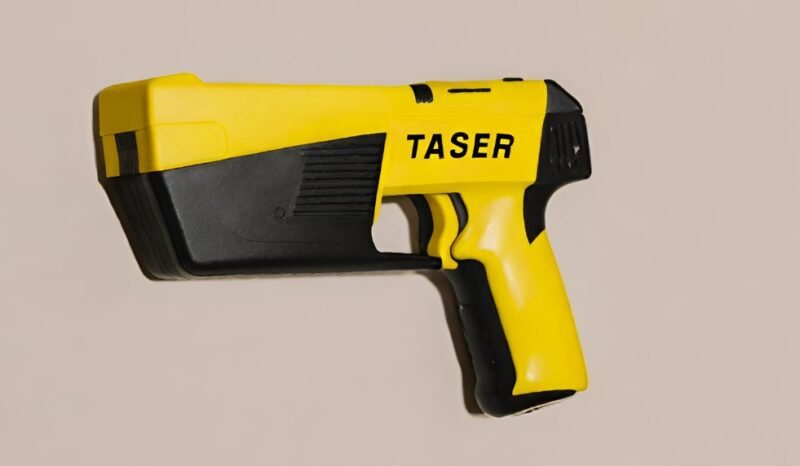When it comes to self-defense, understanding the legal landscape is crucial. In California, a state known for its strict laws on weapons, the legality of Tasers and similar devices is a topic of significant interest and importance.
In this post, I will shed light on the current legal status of Tasers in California, exploring their use, distinctions from other self-defense tools, and the conditions under which they can be legally possessed and used.
Key highlights:
- Legality in California: Readers will learn about the specific conditions under which Tasers are legal in California, including age and background restrictions.
- Distinction between Tasers and Stun Guns: The post clarifies the differences between Tasers and stun guns, along with their respective legal statuses.
- Responsible Use and Ethical Considerations: Insights into the importance of responsible usage, training, and the ethical implications of using Tasers for self-defense.
- Legal Consequences of Misuse: Information on the potential legal repercussions of misusing a Taser, emphasizing the importance of understanding and adhering to the law.
- Navigating Public Spaces and Travel Laws: Guidance on carrying Tasers in public spaces within California and tips for interstate travel with these self-defense tools.
What Self-Defense Weapons Are Legal in California?
In California, the law permits certain self-defense weapons under specific regulations. These regulations are similar to ones in NYC. This includes pepper spray, personal alarms, and certain types of knives.
The state’s approach balances the need for self-protection with public safety concerns.
Specifics of Legality
- Pepper Spray: Widely legal but with restrictions on size and strength.
- Knives: Certain types are legal but with limitations regarding blade length and concealment.
- Personal Alarms: Legal and unrestricted.
The emphasis is on non-lethal means of protection, with each tool subject to specific rules that govern their use and possession.
Can I Use a Taser to Protect Myself?
Legal Status
In California, Tasers are categorized differently from firearms. They are legal for civilian use under certain conditions.
The state permits the possession of Tasers without a need for a special permit, but there are restrictions in place.
Conditions for Use and Possession
- Age Limit: Users must be over 18 or have parental consent.
- Background Check: No criminal record for violent offenses.
- Usage Limitation: Tasers can only be used in situations of self-defense.
It’s important to note that the misuse of a Taser, like using it for offensive purposes or in the commission of a crime, is illegal and subject to severe penalties.
Is a Stun Gun the Same as a Taser?
While often used interchangeably, Tasers and stun guns are different devices. A Taser can incapacitate a target from a distance using projectiles that deliver an electric shock.
A stun gun, however, requires direct contact to be effective.
Legal Implications
The legal status of stun guns in California is similar to that of Tasers. They are legal under the same conditions, with the same age and background restrictions applying.
California’s Taser Laws
The legal landscape in California regarding Tasers is nuanced. To navigate this terrain, one must understand the specific statutes and regulations that govern their use.
These laws are designed to ensure that Tasers are used safely and responsibly.
Compliance with State Regulations
Adherence to state laws is crucial. This includes understanding where Tasers can be carried and the circumstances under which they can be used.
For instance, carrying a Taser in certain public spaces or government buildings may be prohibited.
Responsible Use
- Training and Education: Although not legally required, proper training in the use of Tasers is highly recommended. Understanding how to use a Taser effectively and ethically is essential for ensuring personal safety and legal compliance.
- Ethical Considerations: Using a Taser in self-defense should always be a last resort. The decision to use a Taser must be made with an understanding of the ethical implications and potential legal consequences of its use in various situations.
Legal Consequences of Misuse
Penalties for Improper Use
Misusing a Taser can lead to serious legal repercussions, including criminal charges.
This could range from assault charges to more severe penalties if the Taser is used in the commission of a crime.
Importance of Legal Representation
If involved in a legal situation due to Taser use, seeking legal counsel is crucial.
A lawyer can provide guidance on navigating the legal system and ensuring that your rights are protected.
Comparing Tasers with Other Self-Defense Tools
Tasers vs. Firearms
Unlike firearms, Tasers are considered less-lethal weapons. This distinction is crucial in understanding their place within California’s legal framework.
The regulations surrounding firearms are much stricter compared to those for Tasers.
Choosing the Right Self-Defense Tool
The decision to carry a Taser or another self-defense tool should be based on personal circumstances, comfort level, and understanding of the legal obligations and limitations of each tool.
Where Can You Legally Carry Tasers?
- Public Carry Regulations: Knowing where you can legally carry a Taser in California is as important as knowing how to use it. Public spaces often have specific rules regarding the possession of self-defense tools like Tasers.
- Prohibited Areas: Certain areas, such as schools, government buildings, and airports, have strict regulations against carrying Tasers. It’s essential to be aware of these restrictions to avoid legal complications.
Traveling with a Taser
- In-State Travel: When traveling within California, it’s important to keep the Taser concealed and in a place where it is not readily accessible. This ensures compliance with state laws and public safety.
- Interstate Travel: The legality of Tasers varies from state to state. Before traveling interstate with a Taser, it’s crucial to research and understand the laws of the destination state to avoid legal issues.
Updates in the Law
Staying Informed
Laws regarding self-defense weapons, including Tasers, can change. Staying informed about current legislation is important for anyone who owns or is considering purchasing a Taser.
Role of Legal Advisors
Consulting with legal advisors or law enforcement officials can provide up-to-date information and clarity on any recent changes in the law.
Self-Defense and Liability
Using a Taser in self-defense can potentially lead to civil liability, especially if used inappropriately. Understanding the legal implications of using a Taser is crucial.
Insurance and Protection
Some individuals choose to carry self-defense insurance to protect against potential legal costs associated with the use of a Taser.
FAQs
Do I need a permit to buy a Taser in California?
No, you do not need a permit to purchase it in California, but buyers must be over 18 or have parental consent.
Can I carry a Taser openly in California?
Yes, it’s legal to openly carry it in California, but remember that certain areas like schools and government buildings have restrictions.
Are there restrictions on the type of Taser I can own in California?
California law does not specify restrictions on types of Tasers, but all must be used in compliance with self-defense laws.
Can I bring a Taser to a public demonstration or protest in California?
It’s generally not advisable to bring it to public demonstrations or protests, as it could be construed as a provocation or threat.
If I use a Taser in self-defense, am I required to report it to the police?
While there’s no specific law requiring you to report the use in self-defense, it’s advisable to do so to establish the defensive nature of your actions.
Can minors under 18 possess a Taser with parental consent?
Minors under 18 can possess it in California only with parental consent and supervision. However, they cannot purchase it themselves.
Final Words
Understanding the legalities of self-defense weapons in California, especially Tasers, is critical for law-abiding citizens.
While Tasers and stun guns provide a non-lethal means of protection, they come with responsibilities and legal boundaries.
Adhering to these laws ensures not only personal safety but also compliance with state regulations.

